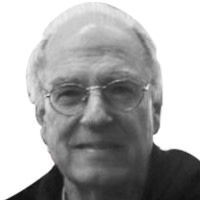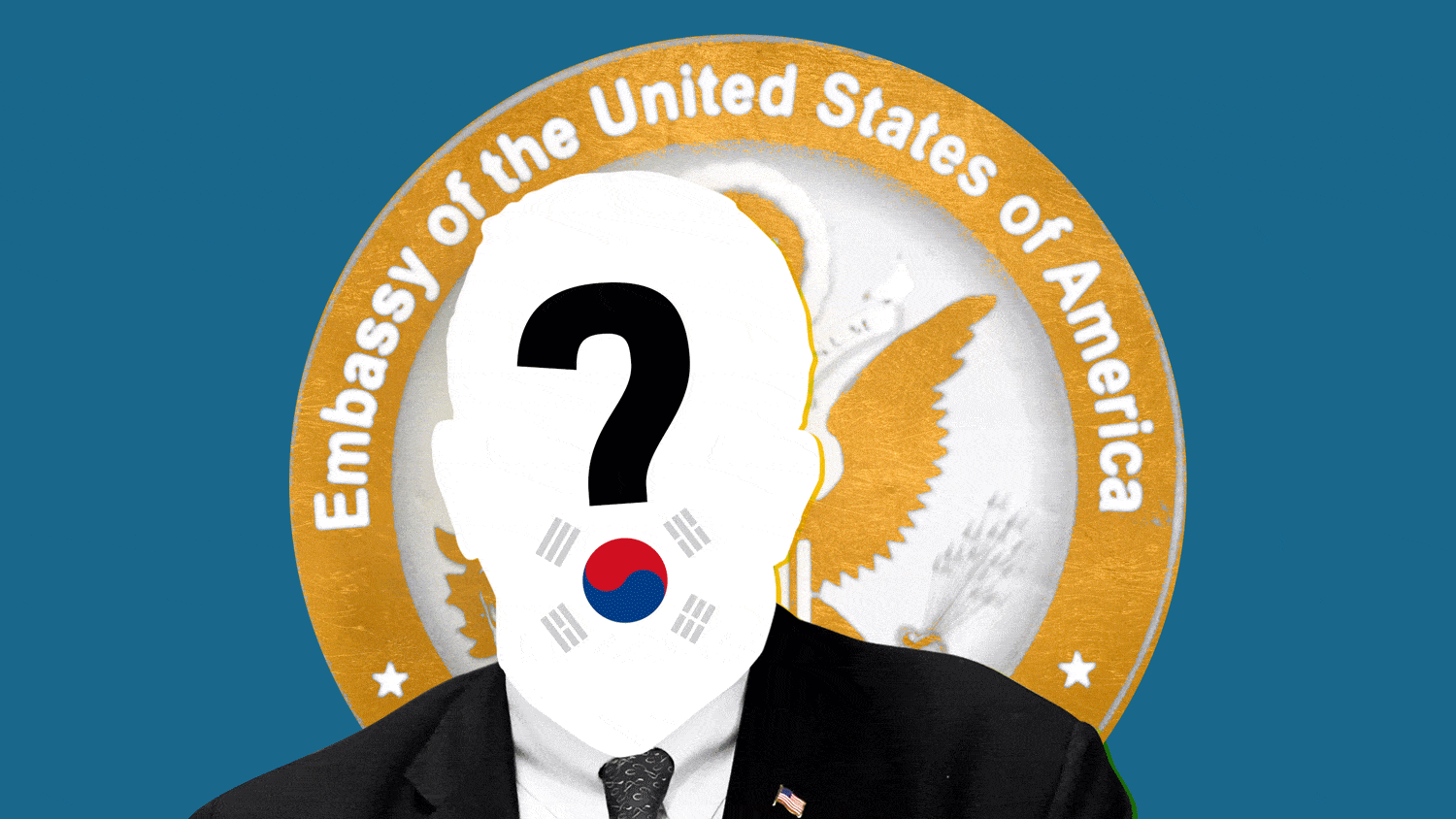SEOUL—Imagine a contretemps of near-crisis proportions involving one of America's closest allies, and no U.S. ambassador is around to ease the pain, to offer soothing words, to grease the way for high-level summitry and exchange backstage confidences.
That's how it's been in Seoul for more than a year now since the departure of the last American ambassador, Mark Lippert, a veteran of Barack Obama's White House staff, a gregarious figure, accessible and outspoken. While North Korea's leader Kim Jong Un has been ordering missile shots and South Korea has undergone a cataclysmic domestic leadership transition, the U.S. embassy here has plodded on with no one to enunciate U.S. policy definitively through the first year of Donald Trump's tumultuous presidency.
"It's puzzling," said a Korean official, musing over the absence of an ambassadorial face. "Maybe we're not that important."
“No, no!” diplomats at the American embassy keep saying as they sit in their its box-like structure, hastily built in the early years after the Korean War, across a broad avenue from the foreign ministry. “No problem, everything is fine.”
For nearly six months now, American diplomats could also note that one of America's leading scholars, a veteran of the White House staff of George W. Bush, a bona fide conservative often reviled by liberals for his "hardline" views, was about to take the post. Victor Cha, a distinguished professor at Georgetown University and chief Korea expert at the influential Center for Strategic and International Studies, a powerful Washington think tank, seemed ideally suited for the post.
Alas, that's not to be. Cha may have been targeted by liberals as a right-winger with close ties to South Korean as well as American corporations, but he clearly wasn't enough to the right to suit everyone. No sooner had the White House dropped his name from the running this week, Cha had an op-ed in the Washington Post outlining his opposition to a preemptive strike on North Korea's nuclear and missile facilities—not even a "bloody nose" attack that some White House figures believe could be carried out without inspiring the massive response that everyone fears.
As Cha wrote memorably in the Post, “There is a point at which hope must give in to logic. If we believe that Kim is undeterrable without such a strike, how can we also believe that a strike will deter him from responding in kind? And if Kim is unpredictable, impulsive and bordering on irrational, how can we control the escalation ladder, which is premised on an adversary’s rational understanding of signals and deterrence?”
For its part, according to David Nakamura of the Washington Post, the administration has hinted there was some obscure unstated security clearance issue after months of vetting, after Cha had been named, and after South Korea had said he would be welcome.
South Korea's leadership is not hiding its disappointment—not so much over Cha, who is well known and liked, as over the failure of the U.S. to fill the position before the Winter Olympics opening Feb. 9 in the mountain resort region of PyeongChang.
The chagrin came through in an unusual statement given to me by a foreign ministry official several hours after I asked for comment.
"The U.S. government asked for the ROK government's understanding through diplomatic channel, saying that it had thought to have a new ambassador to the ROK before the PyeongChang Winter Olympics but failed to do so," the official read out to me, using the initials ROK for Republic of Korea. "So far the ROK and U.S. governments have been cooperating in order for a new U.S. ambassador to Korea to take office as soon as possible and will continue to do so."
The final sentence of the statement was still more stilted but made the point in no uncertain terms. "The two countries are cordially communicating and cooperating at all levels with regard to various issues, including the nomination of a new ambassador to Korea."
The inference was clear. How, Koreans are asking, can we communicate effectively on all those great issues—including mutual defense against North Korea—when there's no ambassador on hand who's got the ear of the president or at least ready access to the White House?
The question assumes still greater urgency as President Moon Jae-in awaits the arrival of Vice President Mike Pence next Thursday, Feb. 8, the day before the opening ceremony of the Games. Dreaming of the Games as a step on the way toward real rapprochement with the North, Moon will watch Pence’s reaction to the spectacle of North and South Korean athletes marching together under a one-Korea flag—an image of the Korean peninsula in blue on a white field.
The U.S. may not need an ambassador to smooth over Moon's meeting with Pence, but what about the follow-up after the Games? Who will be around to relay assurances to Moon that President Trump is not really going to war with North Korea while U.S. and South Korean troops conduct joint military exercises, postponed until after the Olympics and Paralympics?
Those are questions that South Koreans are asking, politely but pointedly. The Americans are not saying much for the record, but to superficial appearances they see little difference between life at the embassy now and in "the old days" when an ambassador was here to lead the charge.
They point out that the U.S. has a veteran diplomat at the helm here, in the form of Marc Knapper, deputy chief of mission under Lippert and now charge d'affaires.
Knapper has been at the side of every high-level visitor over the last year, including his own top boss, Secretary of State Rex Tillerson and Defense Secretary Jim Mattis. He has attended all the briefings by lesser lights from the State Department and knows inside-out how to run an embassy and deal day to day with the foreign ministry. In fact, he's done so well that he should be in line for an ambassadorship himself—but probably not to Korea.
"Nobody knows what's next," was the best that one insider in the U.S. establishment could tell me. He speculated, however, "since it's taken so long, my sense is we're looking at a long stretch."
But how long a stretch? Those war games are coming up right after the Paralympics end in March. What if Kim Jong-un acts up even more than usual— tests better and longer-range intercontinental ballistic missiles, fitted out with dummy warheads? What if he orders a seventh nuclear test? And, horrors, what if Trump does show signs of making good on the "military option"—perhaps a "surgical strike" on one or two test sites?
These are questions that South Korean officials are asking—and Americans, too, off the record. South Korea's foreign minister, Kang Kyung-wha, has let slip a comment or two about the desirability of communicating on the highest level—not just on the odd special visit by a Washington dignitary but with someone on the scene, an ambassador whom she can "summon" across the street to ask questions—and relay concerns over whatever Trump is saying or twitting.
Yes, Mr. Knapper has done a fine job, and we like him, Korean diplomats say, but he's not the ambassador. We need one here now. Urgently.

